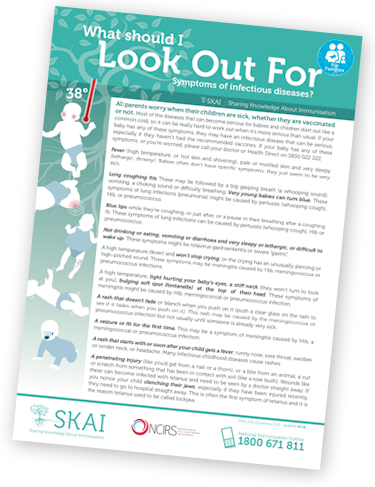What are the symptoms of infectious diseases?
Key facts
-
Serious infectious diseases can cause severe illness in children. Even if treated, some of these diseases can have life-long effects on the children who catch them.
-
It is useful for all parents to know how to recognise the early signs of these diseases so they can get help for their children, if needed.
-
If you decide not to vaccinate your child, they will be at increased risk of catching an infectious disease, and of getting seriously ill.
